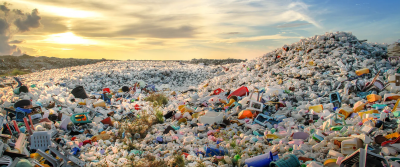


The European Academies Science Advisory Council (EASAC), hosted by the Austrian Academy of Sciences, issued a new commentary showing that systemic failures are driving rapid growth in production, consumption and leakage of plastics in the marine, terrestrial and freshwater environments.
With current policies, global plastic waste is expected to nearly triple by 2060 and the 21st century is likely to be remembered as the "plastic age". Plastics began their triumphant march in the 1960s: today the planet is literally drowning in plastics. More than 353 million tons of plastic waste were produced in 2019 and, according to OECD figures, this will increase to as much as 1,014 million tons annually by 2060 unless drastic measures are taken. This trajectory underscores the urgent need for action to reverse the damage to our ecosystems and biodiversity, as well as the risks to human health.
In its commentary, EASAC provides a comprehensive summary of the latest scientific evidence on plastics pollution and emphasizes the need for negotiators to prioritize solutions that will effectively mitigate the environmental and health risks posed by plastic waste. One of the key insights provided by EASAC is the need to shift the burden of responsibility onto producers and consumers. The current system, which fails to internalize the true costs of plastic production and disposal, incentivizes continued growth in plastics production while neglecting recycling and waste reduction efforts.
Central to EASAC's recommendations is the concept of a circular economy for plastics. This approach emphasizes the importance of making all plastics reusable, recyclable, thereby keeping them in circulation for as long as possible, or compostable. By setting ambitious targets for reducing plastic production and increasing recycling rates, EASAC believes that plastic pollution could be significantly reduced by 2040.
To achieve these goals, EASAC proposes 10 Science-based Recommendations for an International Plastics Treaty
Read the EASAC Commentary here.
Read more about the EASAC Commentary here.